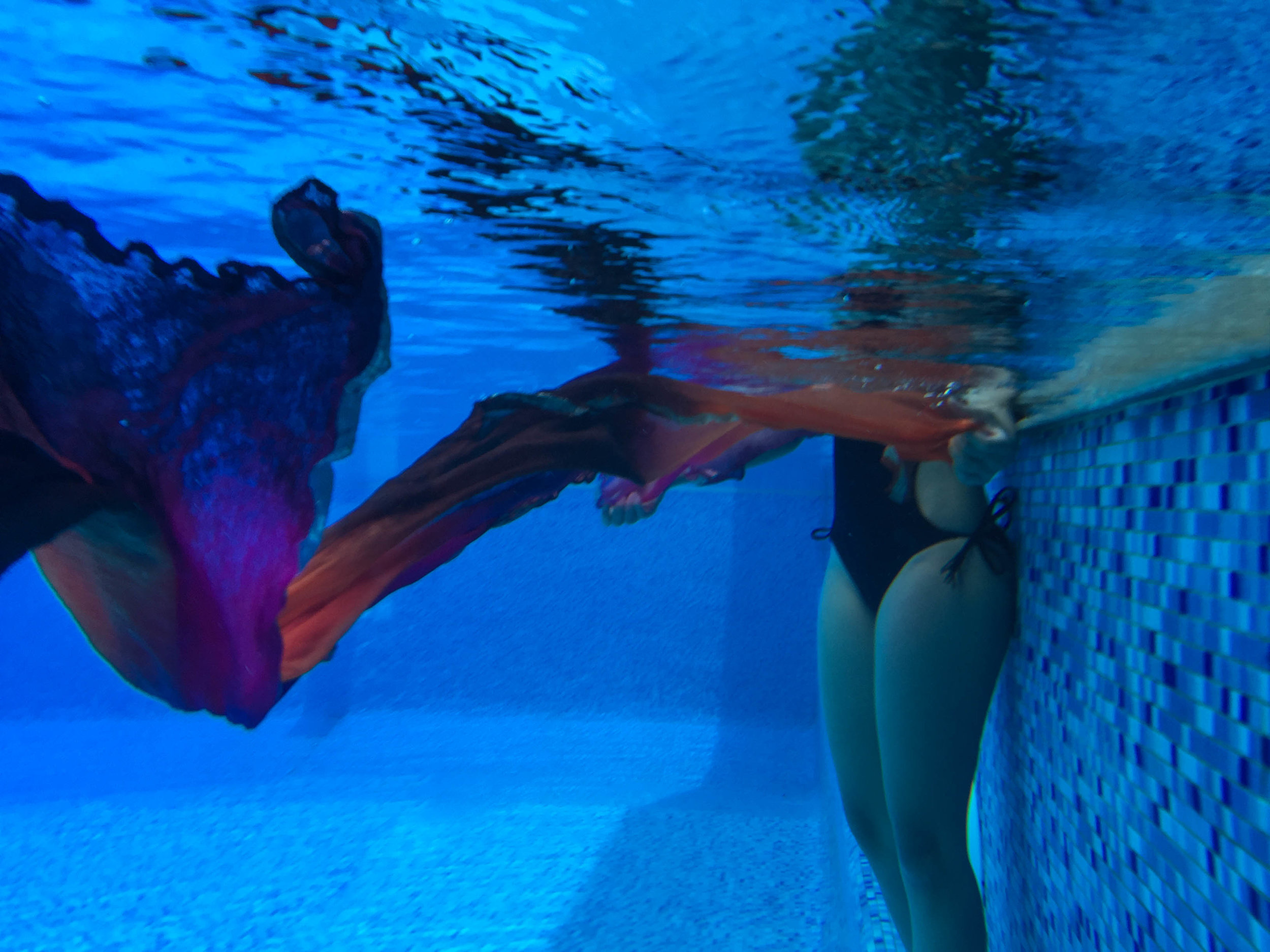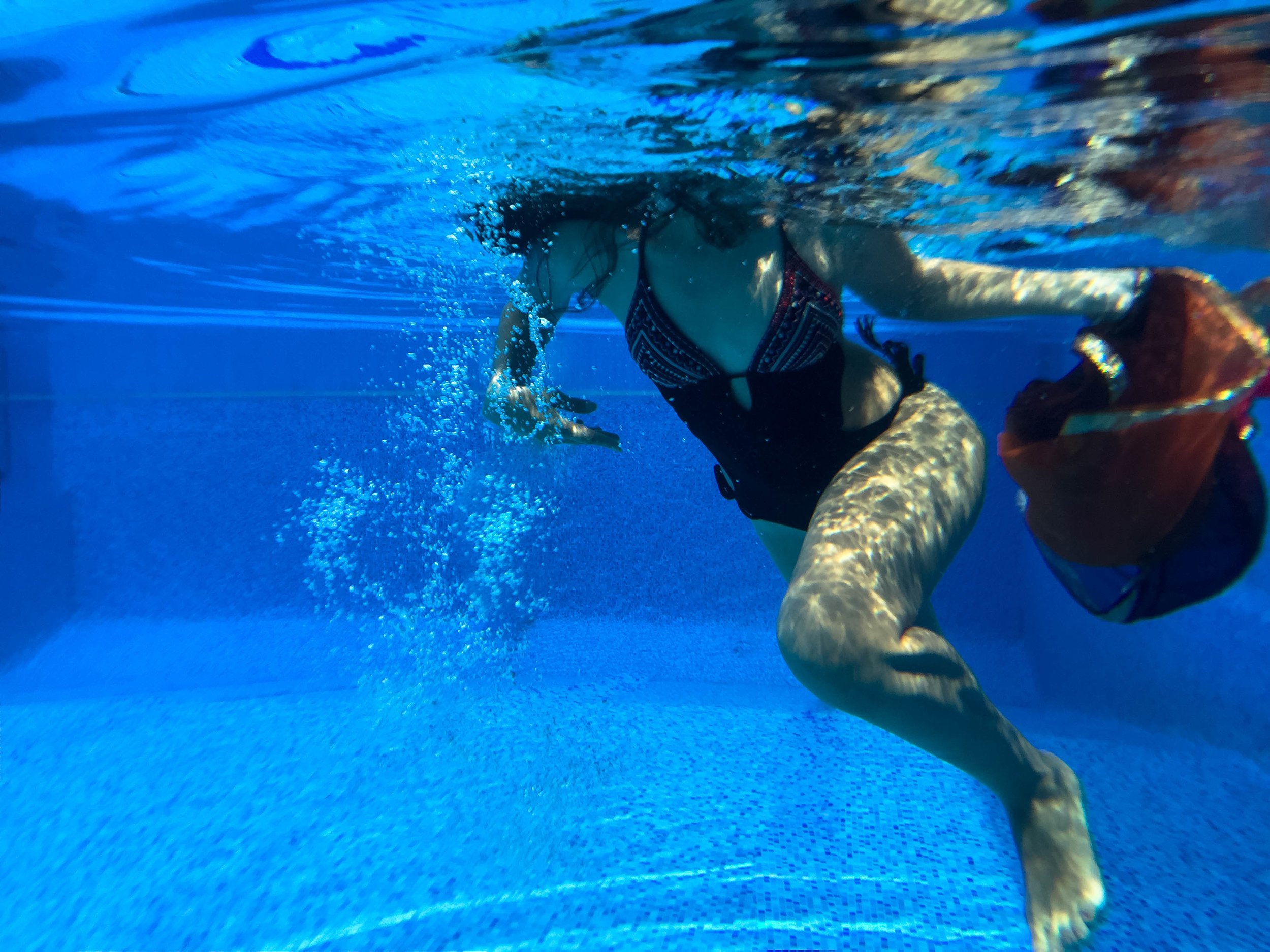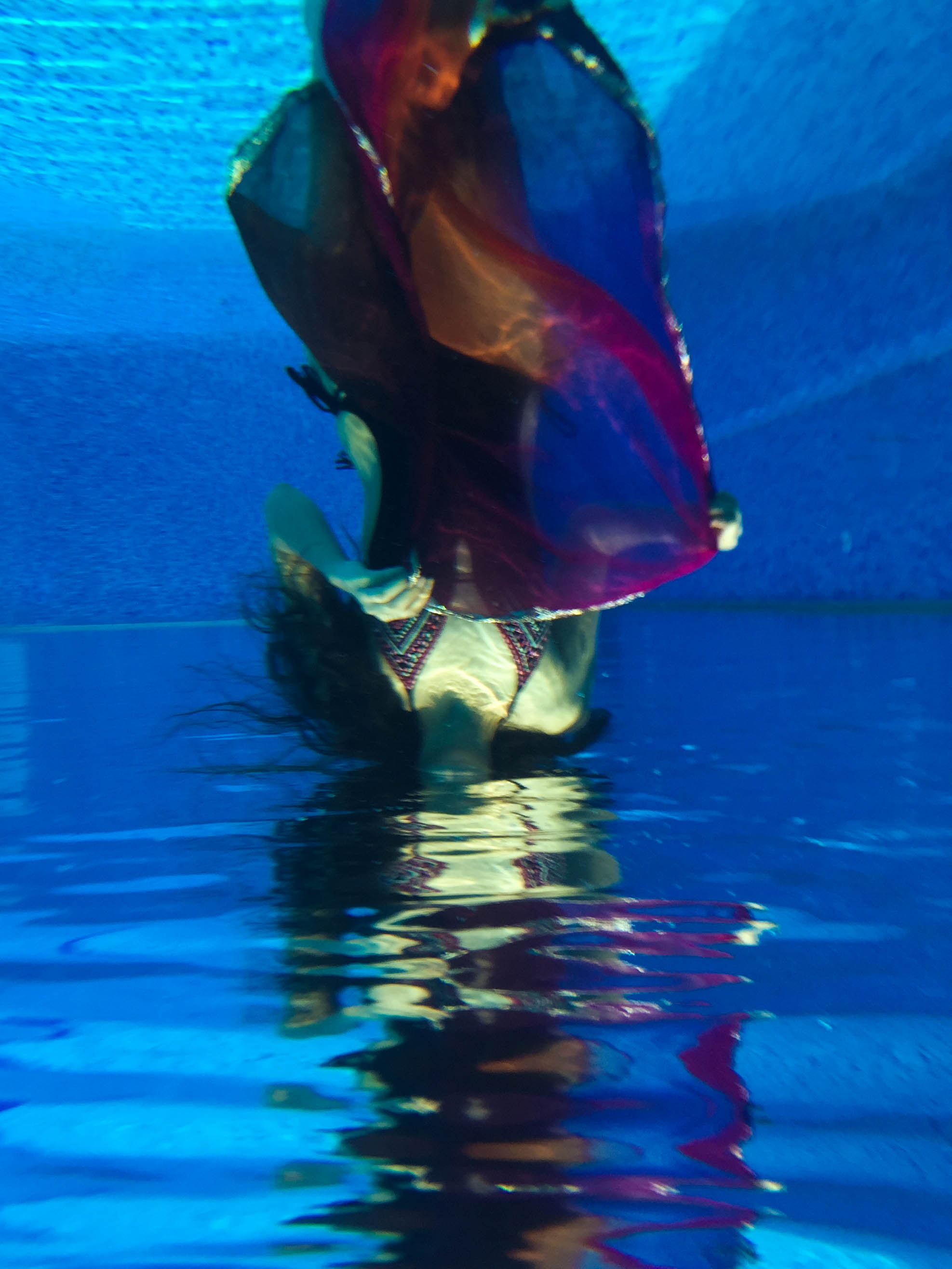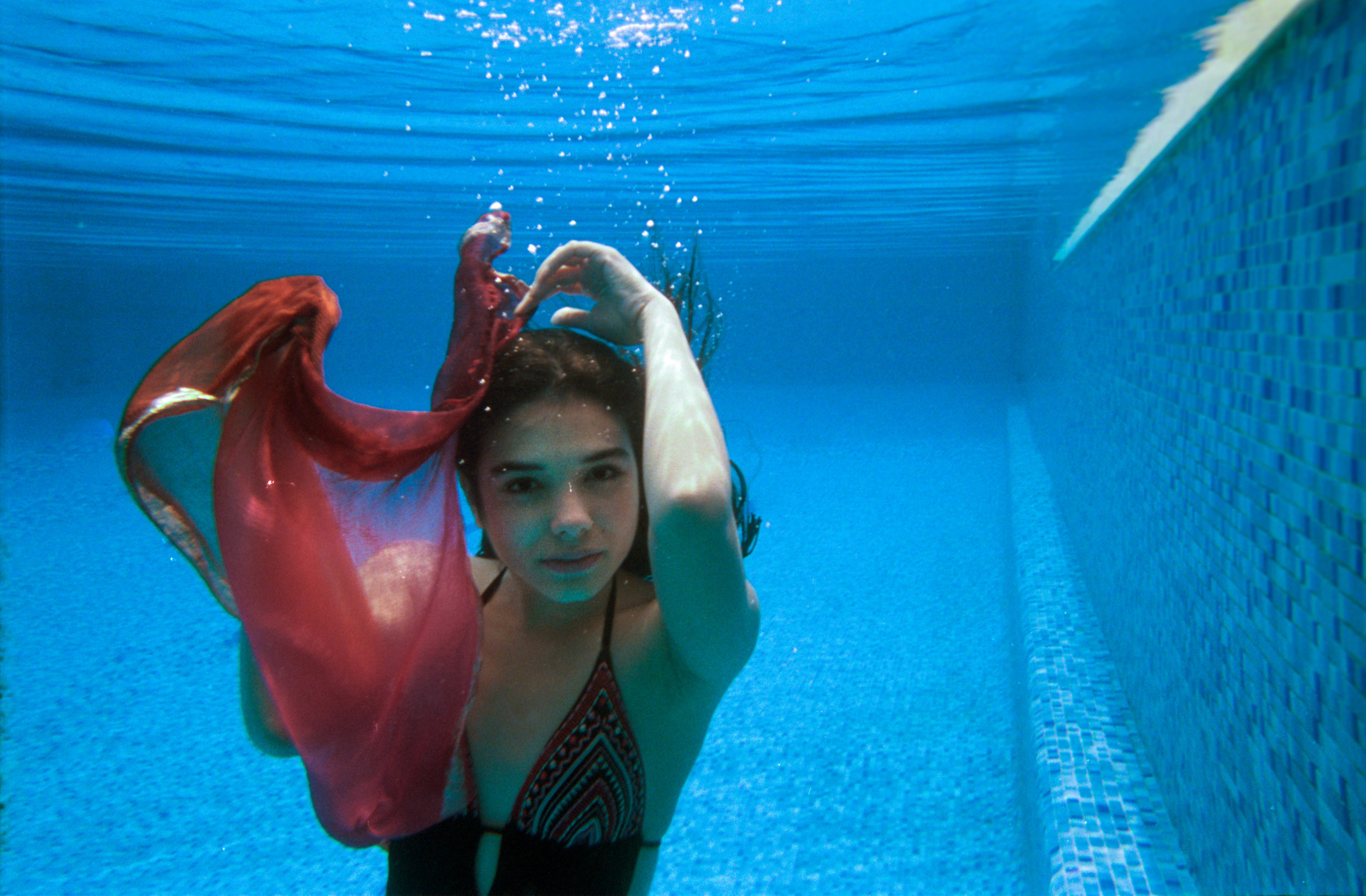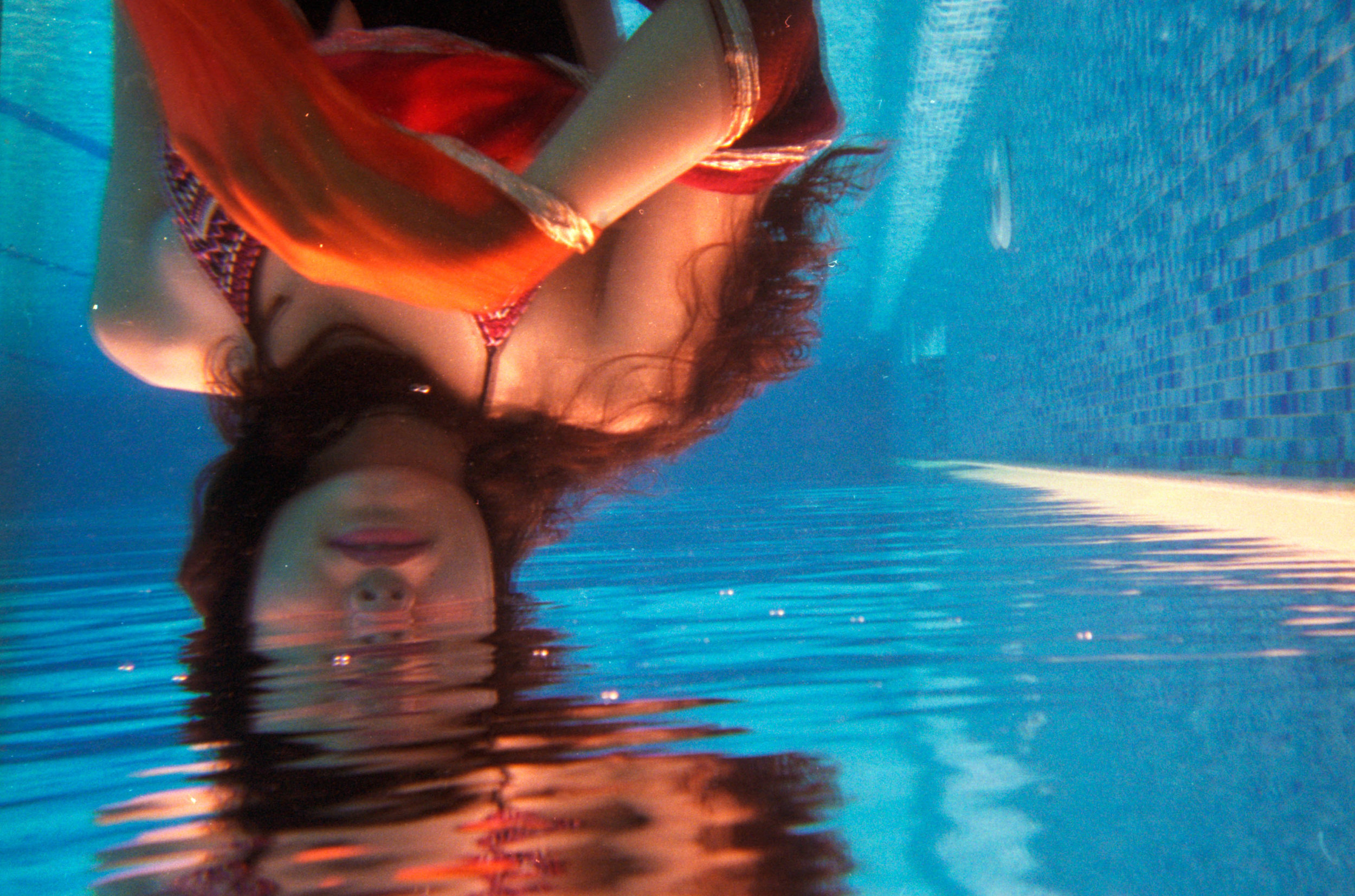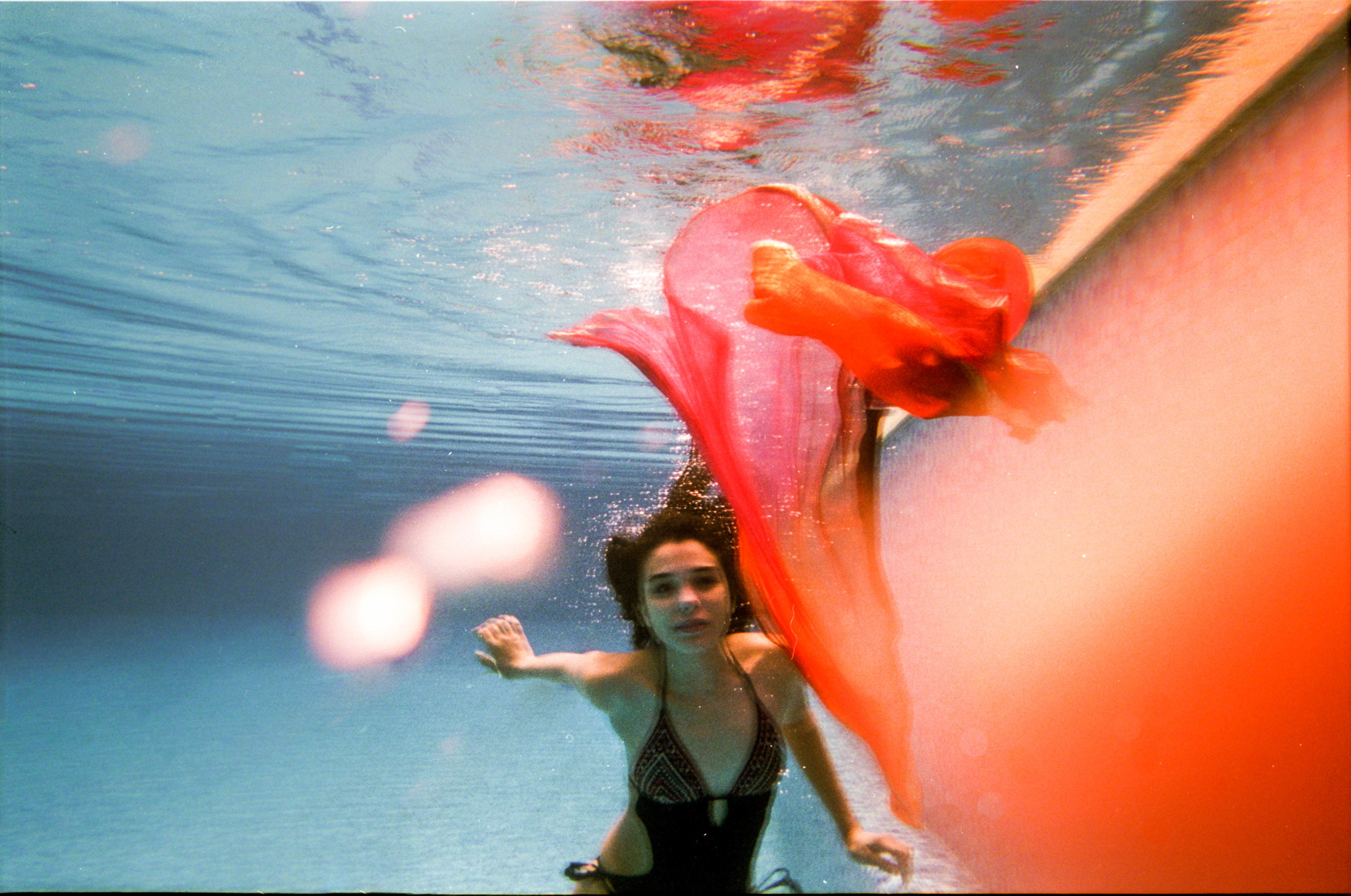Over the last couple of months, I have been doing my research on underwater photography and the changes from silver to digital. Analyzing how it all started and why, and where it is taking us in the future. I must say I was hooked on it and wanted to try my hands at underwater photography. Cashing in on the Christmas break, I traveled to a more sunny side of the world, my base, Chennai, India and decided to collaborate with my friend Tanitha Periera, who is a fashion blogger (TEAL). We were both excited to explore how much control we would or would not have underwater, both as a photographer and as a model. I have done all my research, I have all my references, I have theoretically understood the laws of water and its effect on camera... I have my iPhone with a waterproof case (Digital) and a Kodak disposable underwater camera (Analog) that I bought from the Boots store in London which is also available on Amazon. We jumped into the pool in our bathing suits and threw in a bright colored dupatta to break the hue from the blue water. All done and set. Let's shoot and get some amazing pictures, I thought. Ahaaa!!
Not that easy. Hurdles a photographer can expect shooting underwater,
- You need to find the right model who is comfortable with you and the water. Not everyone is fully aware of their body underwater but Tanitha knew exactly what she was doing. It is quite evident from the output.
- You and the model have to be in sync, this applies to pretty much all genres of photography, but a little extra emphasis on this point when you shoot underwater.
- Model's outfit and props, as the water makes clothes seem heavier, choosing the right kind of material is important. You don't want it to weigh you down.
- Lighting, due to the law of refraction most of the light that passes through the water is dispersed. Shooting when the daylight is at the maximum is important though this problem can be solved with the help of external flashlights.
- You have the freedom to shoot from literally any angle but the problem arises when water makes the subject seem almost 25% larger than it actually is. This is usually corrected by the use of dome ports.
It was an amazing experience. If you get a chance, go give it a shot and you know what to expect. Here are a few pictures from the shoot. Hope you enjoy them. :)
I'd like to thank Tanitha Periera for readily accepting to do this shoot with me. Follow more of her work on Instagram & Facebook.
